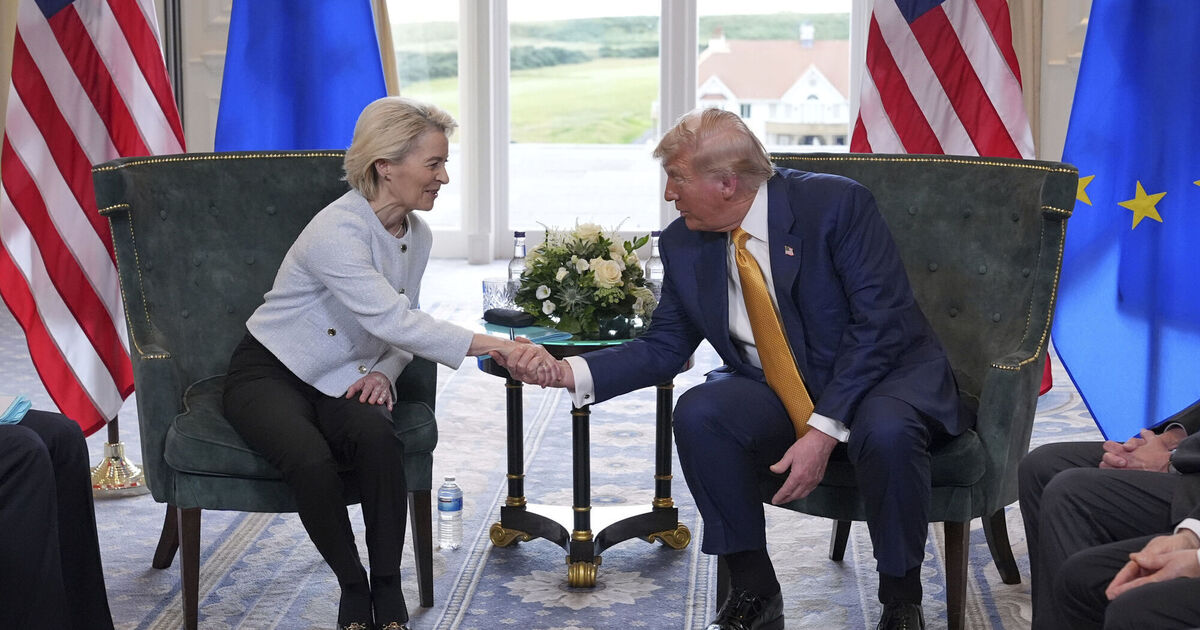The EU’s efforts to safeguard its regulations on digital and Big Tech companies are reportedly holding up a joint statement on trade, following an agreement struck last month in Scotland.
The two sides are at odds over wording around the rules that target the behaviour of multinational tech companies as the US wants to keep open the possibility of concessions on the bloc’s landmark Digital Services Act, the Financial Times has reported.
The EU Commission has previously said that this would be unacceptable.
The Digital Services Act regulates online intermediaries and platforms, such as marketplaces, social networks, content-sharing platforms, app stores, and online travel and accommodation platforms.
The aim of the act is to prevent illegal or harmful activities online and the spread of disinformation. Companies such as X and TikTok are facing EU Commission proceedings for suspected breaches of the act.
US president Donald Trump is not planning to sign an executive order lowering tariffs on EU car imports until the joint statement is finalised, the newspaper said, citing an unnamed US official.
The US and EU agreed to a deal in July that sees the bloc face 15% tariffs on most of its exports, though the US is still yet to lower the levies on cars to 15%.
However, EU officials are confident they will conclude the agreement by the end of next week to unlock both the joint statement and executive actions in the US.
The two sides are working through the details of various issues, including capping tariffs on cars and future sectoral levies at 15%, finalising lists of strategic products that will be granted lower duties and a framework for discussions on steel and aluminium, according to people familiar with the matter.
A spokesperson for the European Commission didn’t immediately respond to a request for comment outside of normal business hours.
The regulation of Big Tech companies is of particular concern for Ireland as many of them have a large presence here such as Google, Meta, and Microsoft, among others.
